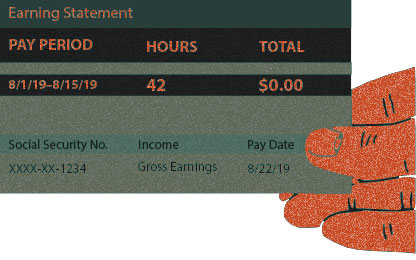
September 2019–November 2019
“Creative Labor is not free or leisurely.” In 2017, the anticapitalist alliance known as Get Artists Paid distributed a manifesto that began with these words. “We demand recognition as the creators of culture. We demand a new world that will be accessible and inclusive to those who have been historically excluded.”
If “art, creativity, and imagination have intellectual, personal, and political value” then so do the people and groups that make art and drive culture, both the artists and the art & culture workers who support them. But while for some artists — most of them white, most of them cis men — the work of art-making doesn’t include having to fight for recognition or insist on their work’s value, marginalized artists are often called on to do an unpaid second shift — the work of changing art institutions, standards, and the culture of art itself, from the inside.
In the 1970s, artists like Faith Ringgold, Judy Chicago, Miriam Shapiro, Faith Wilding, Claire Zeisler, Jagoda Buic, and others used “women’s work” — traditional crafts like sewing, weaving, pottery, and quilting, as well as domestic skills and tools — to “juxtapose women’s power with their exploitation.”¹ Inspired by the politics of second wave feminism, these artists asserted that women’s crafts and decorative arts had “political and subversive potential.” They insisted that “traditionally feminine” skills and materials were “a viable artistic means” to express and examine their experiences.² For contemporary artists, like this fall’s artist in residence Ahree Lee, “women’s work” is still deployed to highlight the flows of power, and the labor that institutional power has made invisible.
Contemporary feminist art has expanded beyond critiques of domesticity and male dominance, in order to take on migration, capitalist exploitation, prison abolition, fluidity of gender and limitations of gender binary. Some of this quarter’s programs will link traditional crafts to some of these pressing feminist issues.
This quarter, we’re considering Unpaid Labor — as in uncompensated, but also: not rewarded, acknowledged, appropriately valued, and in some cases not even visible.
Whose work has value — to whom? And why? And whose labor do we rely on without realizing it?
What does labor look like when it’s consensual, reciprocal, acknowledged, and valued? How does labor transform when done in community?
How should justice work be valued? Or the work of liberation?
How many different ways can we approach compensation? Where do we find examples of alternative economies — value systems where our needs are met through strategies other than money?
When we think of Unpaid Labor we’re thinking of our work as feminists and womanists, we’re thinking of protest, of “complaint as diversity work”, of care work, emotional labor, disability justice work, the work of interdependence, of being in relationship, the work of collectivity, and the work of imagination.
¹ Women craftivists are reclaiming domesticity as a quiet form of protest
Here are some other things to read, watch, hear & think about! Silvia Federici’s Caliban & the Witch (video); Sara Ahmed’s “Complaint As Diversity Work” (video); emotional labor; Get Artists Paid; adrienne maree brown’s Emergent Strategy; Decolonizing Non-Violent Communication by Meenadchi; Care Work by Leah Lakshmi Piepenza Samsha & A Modest Proposal For A Fair Trade Emotional Labor Economy; The Revolution Will Not Be Funded (edited by INCITE!); Women’s Work: First 20,000 Years by Elizabeth Wayland Barber; Broad Band by Claire L. Evans; Commune Magazine
September Programs
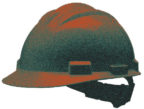
WCCW Reading Series: Work & Labor
Thursday, Sept 12, 7:30pm – 9:30pm
Free
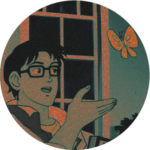
Decolonizing NVC
Mondays, 7–10pm
Sept 30, Oct 7, Oct 21, Oct 28, Nov 4, Nov 11
Hosted by meenadchi
$100 Regular / $80 Members
October Programs
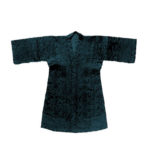
Sewing Rebellion: Motifs, Migrations and Misappropriations
Saturday, October 5, 11am-2pm
Presented by Frau Fiber
$10 Regular / $8 Members

CraftyHour
Wednesday, October 9, 7–10pm
Presented by Ahree Lee
Free

Color Film: Draw Your Line (Boundaries At Work)
Wednesday, October 16, 7-10pm
Presented by Color Film
$10 Regular / $8 Members
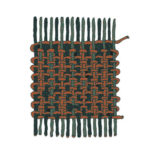
Digital Weaving, Physical Computing
Saturdays, 3-6pm: October 19, October 26, November 2
Presented by Ahree Lee, Qianqian Ye, Evelyn Masso and Berfin Ataman
$60 Regular / $48 Members
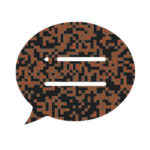
Ahree Lee in Conversation with Kayleigh Perkov
Wednesday, October 23, 7-9pm
Presented by Ahree Lee and Kayleigh Perkov
Free (RSVP)

Unpacking Anti-Blackness In POC Communities
Sunday, October 27, 4-7pm
Presented by Shift
$3 / POC ONLY
November Programs
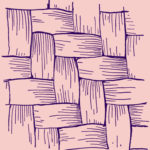
Hands on Weaving
Wednesday, November 13, 2019, 7pm–10pm
Presented by Ahree Lee and Clara Earthly from the Southern California Handweavers’ Guild
$5 Regular / $4 Member
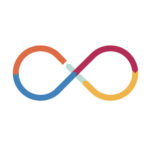
Women, Technology, and Power: A Workshop to Design the Future
Saturday, November 16, 2019, 10am–1pm
Presented by Ahree Lee & Susan Edwards
$3 (no one turned away for lack of funds)
